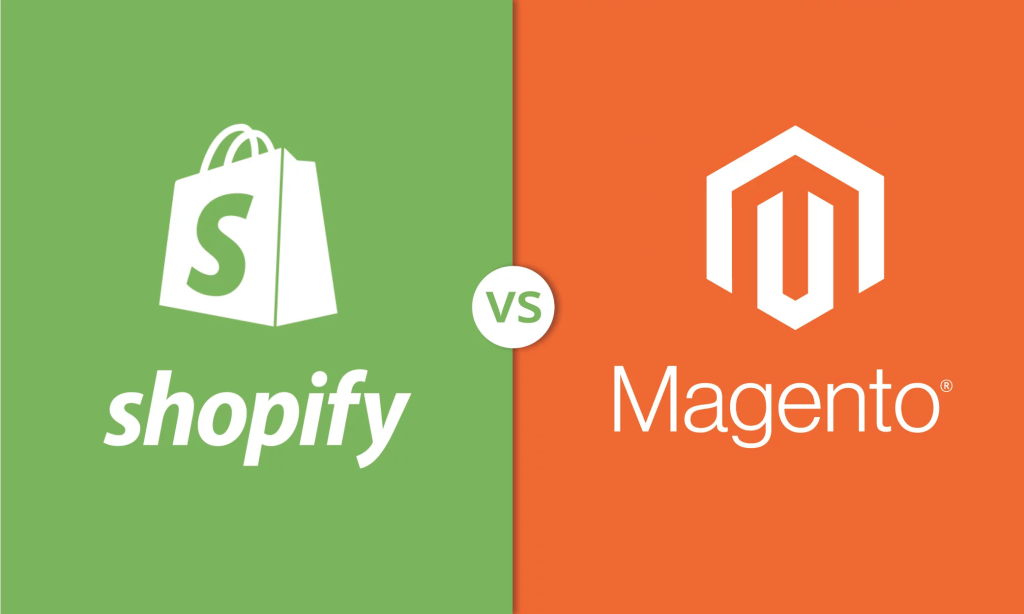When comparing Magento vs. Shopify differences, merchants face a critical decision in shaping their eCommerce future. As two leading platforms powering over 2.5 million online stores globally, they represent fundamentally different approaches to digital commerce. This expert comparison analyzes 7 vital distinctions backed by market data from Forrester Research and real-world implementation cases.

Main Differences
1. Platform Philosophy & Hosting
Shopify operates as a SaaS (Software-as-a-Service) solution with fully managed hosting, while Magento (now Adobe Commerce) offers an open-source framework requiring self-hosting. This fundamental difference impacts:
- Upfront costs: Shopify starts at $29/month vs Magento’s $15,000+ implementation costs (Adobe Commerce Cloud)
- Technical requirements: Magento needs PHP developers vs Shopify’s no-code interface
- Scalability: Both handle enterprise traffic, but Magento offers more infrastructure control
2. Market Share & User Base
Recent data from Gartner shows:
| Platform | Market Share | Typical Users |
|---|---|---|
| Shopify | 28% | SMBs, startups, direct-to-consumer brands |
| Magento | 12% | Enterprise businesses, complex B2B operations |
Functional Differences
3. Customization Capabilities
Magento’s open-source architecture allows:
- Deep code-level modifications
- Custom module development
- Tailored checkout workflows
Shopify limits core code changes but offers 8,000+ apps in its App Store for functionality expansion.

4. Multi-Store Management
Enterprise merchants appreciate Magento’s native multi-store capabilities:
- Single admin for multiple storefronts
- Regional inventory management
- Localized pricing strategies
Shopify requires third-party apps like Shipturtle for multi-store setups.
Technical Demands
5. Security & Compliance
Both platforms offer PCI compliance, but differ in:
- Update management: Shopify auto-applies security patches
- Certifications: Magento meets strict GDPR and HIPAA requirements
- Data ownership: Shopify stores data on AWS vs Magento’s self-hosted options
6. Performance Optimization
Independent tests by Cloudways reveal:
- Shopify: 1.2s average page load time
- Magento: 2.4s load time (optimizable to 0.8s with proper hosting)
Cost Comparison Breakdown
7. Total Ownership Costs
A 3-year cost projection for mid-market businesses:
| Expense | Shopify Plus | Magento Commerce |
|---|---|---|
| Licensing | $24,000/year | $48,000/year |
| Development | $15,000 | $65,000 |
| Hosting | Included | $18,000 |
| Total | $87,000 | $131,000 |

Which Platform Wins?
The Magento vs. Shopify debate ultimately depends on business requirements:
- Choose Shopify for: Quick launch, budget-friendly operations, and seamless updates
- Opt for Magento when: Needing custom workflows, multinational operations, or complex B2B requirements
Explore Shopify’s free trial or Magento’s demo to experience these differences firsthand.




